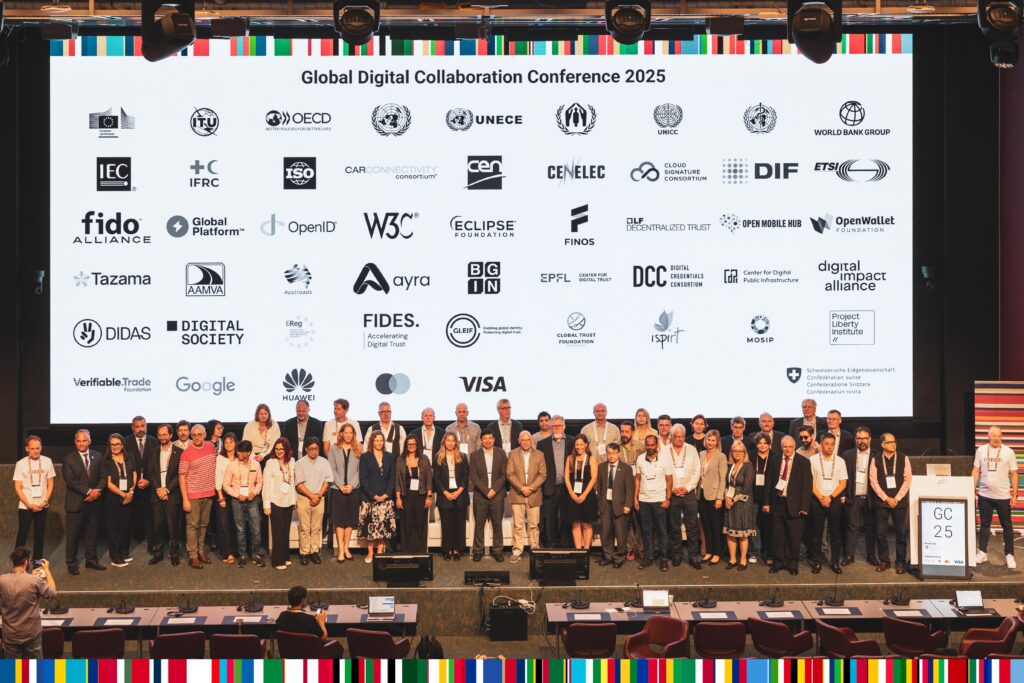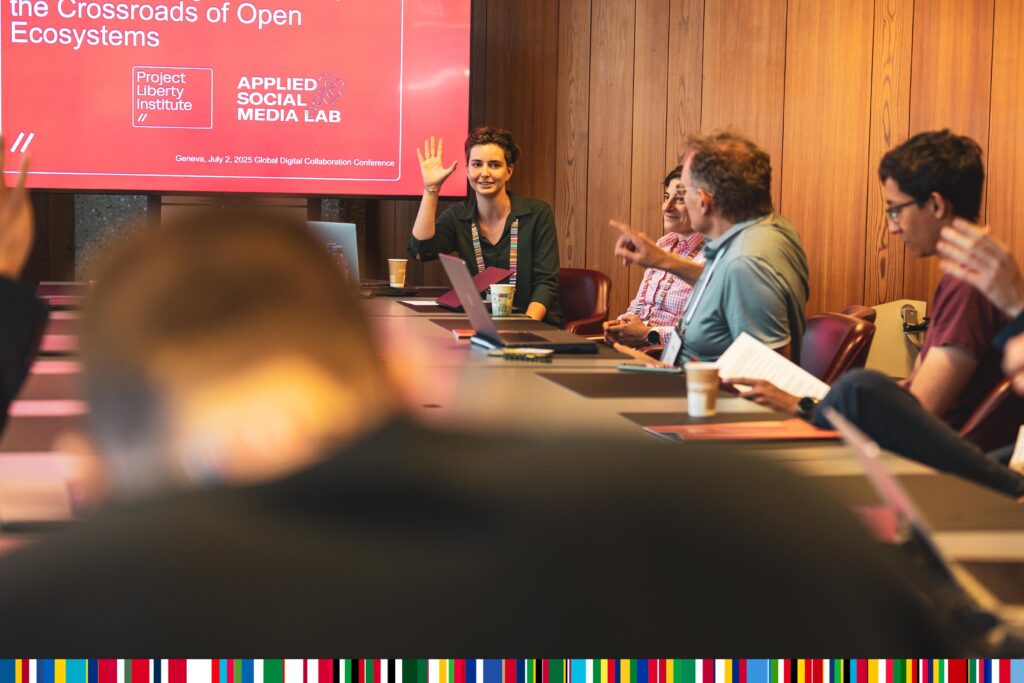On July 1–2, Project Liberty Institute participated in the Global Digital Collaboration Conference in Geneva, serving as an official co-organizer alongside the World Bank, ITU, European Commission, OECD, ISO, W3C, and other leading institutions. The conference convened over a thousand global stakeholders working to foster digital identity, credentials, and trusted infrastructure for everyone’s benefit and to foster open collaboration.

Workshop on Bridging Governance and Technical Design: DSNP at the Crossroads of Open Ecosystems
As part of the program, Project Liberty Institute hosted a high-impact session titled “Bridging Governance and Technical Design: DSNP (Decentralized Social Networking Protocol) at the Crossroads of Open Ecosystems.” Co-organized with Harvard’s Applied Social Media Lab (ASML), the session brought together Project Liberty Institute and DSNP’s Wendy Seltzer, Wes Biggs, and Sarah Nicole, along with Alberto Leon, a senior software engineer at ASML.
After presenting DSNP and its path towards progressive decentralization, the discussions explored how governance and technical design choices must go hand-in-hand in building trustworthy, open digital systems. Key questions raised the need for liability and enforcement within governance frameworks, contributions back to the open-source ecosystem, how to design for more participatory decision-making from the start, and the responsiveness and sustainability of the evolutionary governance framework.

Governance by Design Leads to Trust by Default
In most projects, technical choices and governance work in complete silos, and governance is often an afterthought, leading to all sorts of undesirable system outcomes. We are proud to help drive the very important conversation on aligning open technical design with meaningful governance, which felt especially timely.
On the first day of the conference, the Swiss Federal Council reminded participants that in 2021, over 64% of Swiss voters rejected a national e-ID proposal, mainly due to concerns about personal data and identity privacy. A revised proposal will be put to voters again in September 2025. That strong public rejection was not just a response to a specific policy; it was a signal. It reflected broader public unease with digital systems perceived to lack accountability and transparency. When governance is absent or unclear, people lose trust in the system.
Building digital systems that earn and deserve public trust requires more than technical excellence. It demands participatory, transparent, and values-aligned governance. That is why Project Liberty Institute continues to work on shaping infrastructure that gives people a voice, choice, and stake.